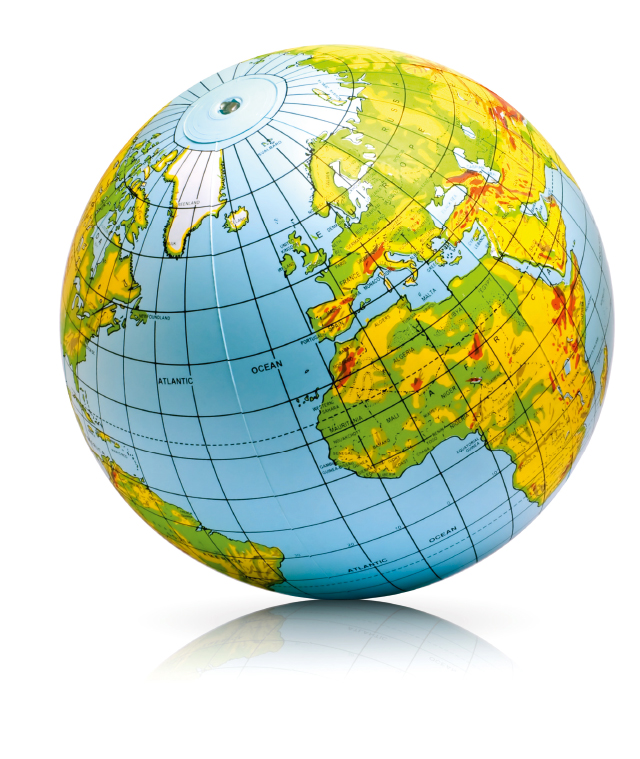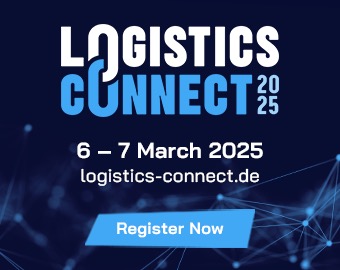If you see and hear the rumblings in the world today, you might be forgiven for feeling that many places are already bidding globalisation a loud farewell. How realistic is this, though, and how far should Germany detach itself from China or other trading powers as all this unfolds?
Flexibility and adaptability in demand
For Dreeke, the biggest challenge is that we have been waking up to a changed world every day for months and it does not take long for many things that we have been taking for granted to no longer apply as we know them. Concerning the global trade flows and BLG’s logistics activities, he emphasises how important flexibility and adaptability are in these times. “We have almost 100 locations and branches in Europe, America, Africa and Asia,” he explained, “and we’re increasingly active in a number of markets, such as container handling, automobile transport and finished vehicle processing, as well as a wide range of services in industrial and commercial logistics. It’s our diversified product and service portfolio that makes us robust and adaptable.”
“The crises in the ports worldwide have shown the efficiency and resilience that exist in the German ports,” continued Dreeke, addressing the ports in Bremen and Lower Saxony. “This applies to all the goods we’ve handled – not just containers, but also cars, bulk goods and conventional freight. German ports are outstandingly competitive.” He views intermodal connections as one of the main strengths German seaports have compared to their international competitors. “German ports lead the way internationally in terms of rail connections,” the manager added. “Plus, as far as the size of the vessels is concerned, the deep-water port in Wilhelmshaven gives us additional flexibility.”
Go-it-alone approaches do not lead to success
Dreeke also takes a clear position on the question of a skilful approach to China. “Trading with China is a fundamental decision that Germany made decades ago. In doing so, we’ve always known what kind of political regime we were dealing with in terms of business. And it doesn’t matter whether it’s the automotive industry, the mechanical engineering industry or the chemical industry, China is now one of our most significant trading partners.” However, he is cautious, given the development in recent years. “What has changed is the Chinese aspiration to become economically active outside their own country – i.e. the ‘new Silk Road’. As Europeans, we would do well to find an answer to this. Each individual country won’t be able to do it alone.”
Thomas Heck, Head of the China Business Group Germany and Europe at the auditing and consulting firm PwC Germany, and his colleague Peter Kauschke, Director Transport, Logistics & Mobility at PwC, also believe that the days of globalisation are far from numbered. “We continue to see and anticipate that companies will diversify their procurement channels and also seek new sales markets without abandoning existing ones. As a result, we’re convinced that there will be a shift towards reglobalisation in the sense of reform and renewal,” said Kauschke. Accordingly, he does not expect a complete reversal of globalisation, which would be associated with a turning away from global supply chains. “After all, the core challenges of international logistics, such as the supply of raw materials, climate protection and digitalisation, can’t be mastered at all on a national level,” he stated, thus taking the same view as Frank Dreeke.
Decoupling is not a desirable outcome
As Heck sees it, the sanctions resulting from Russia’s war with Ukraine have highlighted the dependence of Western economies, especially on Russian oil and gas, which has led to an increased awareness of the risks of economic engagement with China. “Although China officially takes a neutral diplomatic position towards Russia’s aggression against Ukraine, statements by government representatives create the impression that China is actually on Russia’s side,” he explained. At the same time, he interprets the recently published drafts of the German and EU China strategies to mean that the governments intend to examine China’s influence on the domestic economy much more closely in the future. “Given the developments of recent years, it’s not only understandable but also necessary for political and business leaders to rethink their strategies, not only with regard to China, but in a much broader context,” said Heck. “While global decoupling is not a desirable outcome, companies looking for new growth opportunities must try to avoid the risk of concentrating on one country as a market or on individual suppliers and, at the same time, endeavour to look to emerging economies, for example in Southeast Asia,” he suggested.
In China’s case, Heck has identified many interesting but also contradictory developments over the past months. In the wake of the stagnating economy – according to estimates by leading economists, the Chinese economy will only grow by 3.1 per cent in 2022 – exports to Europe and the USA, among others, have recently declined, while exports to Russia and the ASEAN countries have increased. Moreover, according to recent surveys by various chambers of commerce representing foreign companies in China, overall confidence in the country has suffered, while at the same time foreign direct investment has reached record levels. “All these, in my view, are clear indicators of the uncertainty that currently prevails in the world markets. No one really knows where the path towards reglobalisation will lead,” Heck stated.
“Global supply networks will continue to decline”
The Volkswagen Group sees itself as a global player, operating at 120 sites worldwide and offering its ten brands in 153 countries. Nevertheless, the Wolfsburg-based automotive company has been pursuing a certain deglobalisation strategy for some time now. In recent years, it has built up a relatively strong regional supply network, which is why only a small proportion of its automotive parts are supplied globally, a company spokesperson told LOGISTICS PILOT. “Global supply networks will continue to decline,” they added, “also because the Group wants to contribute to protecting the environment by reducing emissions. Even today, from an overall economic perspective, we source the majority of our parts locally.”

“I don’t think we’ll see the decline of globalisation.”
Frank Dreeke, Chairman
of BLG LOGISTICS Group
Globalisation

“These are clear indicators of the uncertainty that currently prevails in the world markets.”
Thomas Heck, Head of the China Business Group Germany and Europe at PwC
relations between Europe and China in the future?

A WIDENING GAP
Interview with Jens Eskelund,
Vice President of European Union Chamber of Commerce
Mr Eskelund, how do you assess the quality of economic trade between Europe and China? In your opinion, has this tended to improve or deteriorate in recent years?
EU-China trade is below its potential. EU exports to China are relatively small, given the size of the latter’s economy. Eurostat data highlights that during the first half of 2022, the EU exported just 24% more to China than it did to Switzerland in value terms, despite China’s economy being 22 times larger. EU-China trade is also unbalanced, with the EU currently importing roughly three times more goods from China than it exports to the country. Limited progress has been made on both these fronts in recent years. Indeed, the imbalance has improved only over the past year.
European companies often complain about the unequal competitive conditions when compared to domestic companies and an opaque regulatory environment in China. Do you see a positive development in this respect? If so, in what way?
The answer varies depending on the industry in question. Segments of China’s economy continue to open and are increasingly well-regulated, with restrictions on foreign investment loosening in recent years. At the same time, strategic industries remain fully open only to state-owned enterprises (SOEs). In such sectors, SOEs continue to receive preferential treatment — unequal access to financing, licences and public procurement, and the ability to influence policy — and are protected from market competition to the detriment of the private sector.
What will China’s President Xi Jinping’s third term mean for Europe and Germany – and for global trade?
With the full line-up of officials appointed at the 20th Party Congress for President Xi’s third term not due to come to office until March 2023, it is not yet possible to fully ascertain what the new administration’s stance on key issues will be. Nevertheless, it is expected that a stress on security and self-reliance will continue to be seen as imperative. One positive may be China’s changing approach towards COVID-19. As out-lined by the Chamber’s Position Paper 2022/2023, China’s strict adherence to its zero-COVID policy had not only negatively impacted its economy, but also global trade and supply chains. There has been a paradigm shift in China’s approach to COVID-19 in recent weeks, with China now beginning to ease its stringent COVID-19 restrictions. If this transition is successfully managed, then this could help boost confidence in the Chinese market and help alleviate some of the headwinds facing global trade, although this will be a difficult task. The ability for key stakeholders in both Europe and China to finally meet in person again will be very helpful.
What approach should we take in
the future to bring Europe and China closer together?
With EU-China tensions currently high, it is vital that European and Chinese leaders have the chance to meet face-to-face to discuss their relationship. In this regard, the recent visits to China by Scholz and Michel are positive factors. However, more of the same will be required. It is also important that both sides continue to seek cooperation in areas where it would be of mutual benefit. Strengthening international efforts to tackle climate change stands out as the most obvious opportunity here (bre)
Most read

“There will be a shift towards reglobalisation in the sense of reform and renewal.”
Peter Kauschke, Director Transport, Logistics & Mobility at PwC
“We are radically feeling the consequences”
For the climate change strike movement Fridays for Future, our society is at a point where we are radically feeling the consequences of our past political and economic actions, for example through the multitude of current crises. “In order to avoid ecological and social crises and to achieve a truly just society, we should alter how our society is structured and how we value people and nature,” said Darya Sotoodeh, Fridays for Future spokeswoman. She adds that this is not about globalisation in general, but about placing more value on the planet’s natural resources and human life. “Manufacturing and trade must adapt to this. In practical terms, this means, for example, that every human being enjoys a certain level of acceptance without having to prove themselves or be economically productive. Only then can the massive exploitation of people and nature that’s currently taking place in our world end,” she remarked.
In this context, she sees networking on a global level – whether for trade or another form of exchange – as a good thing generally. However, this should ideally be done out of mutual interest and on an equal footing, and not out of the motivation to maximise profits or due to the fear of losing out in the global competition. “Global trade as it is at present is driven precisely by these aspects. In the past, Europe laid a decisive foundation stone for this economic system, which China is now following. Of course, Germany can’t escape this influence completely. However, it’s important not to support human rights violations in any way and, if possible, not to become heavily economically dependent on other states,” added Sotoodeh. “We need socio-ecological transformation,” she suggested. “A tangible start might be, for example, a circular economy or consistent supply chain laws.” (bre)


“Europe has cast the crucial first stone for this economic system, which China is now following.”
Darya Sotoodeh, Fridays for Future spokeswoman






